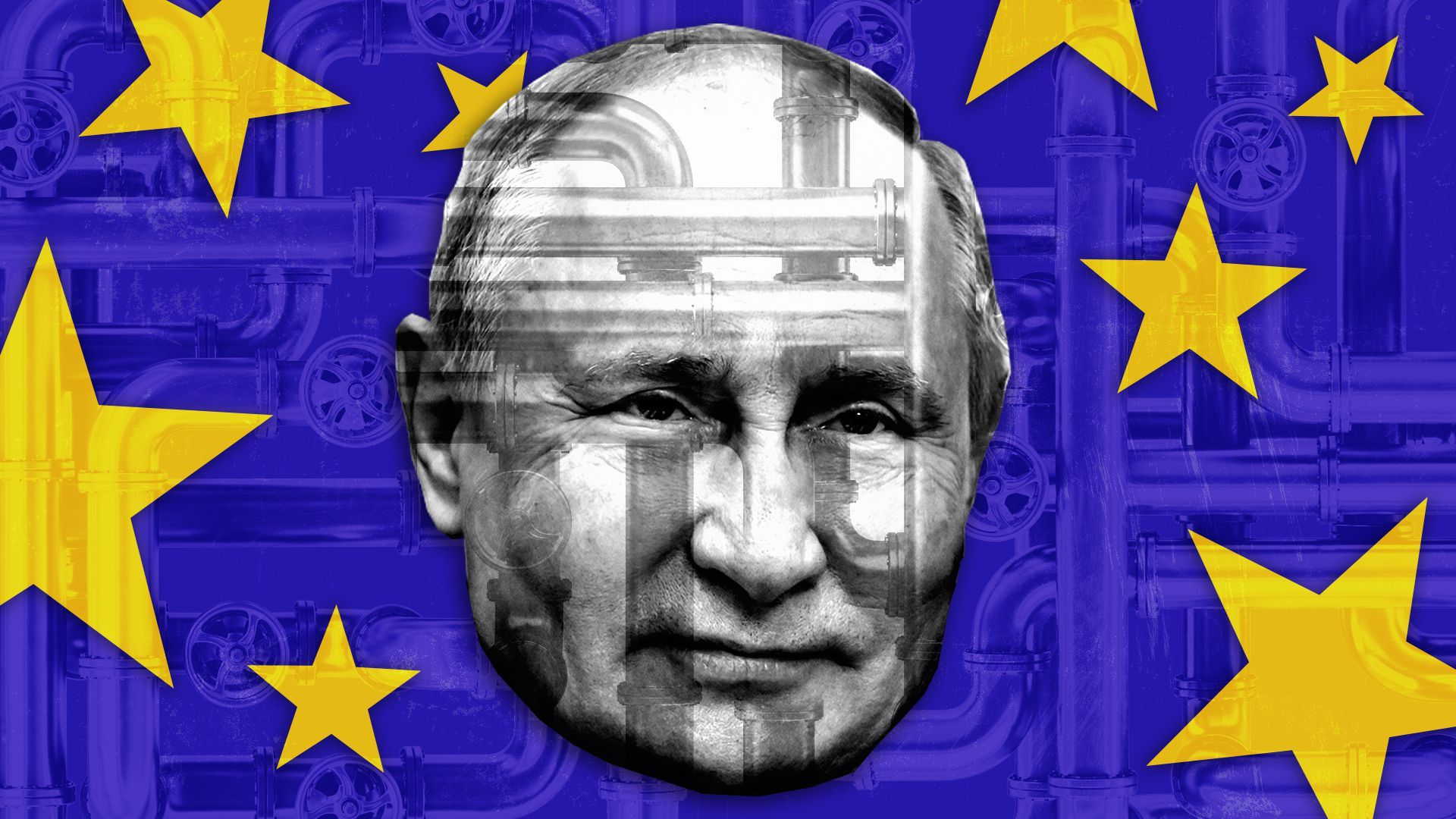
Photo illustration: Shoshana Gordon/Axios. Photo: Alexei Nikolsky\TASS via Getty Images
European natural gas prices continue to go nuts, as the market has become a theater in the growing conflict between Russia and the West.
Why it matters: Russia is increasingly seen as treating its energy assets as political tools, rather than mere sources of revenue, upending a market once driven largely by basic questions of supply and demand. For now, that geopolitical game of chess is squeezing the balance sheets of Europe's energy companies and ordinary consumers.
- "One thing [President Vladimir] Putin does very well, he uses what looks like market activity for geopolitical purposes," Anna Mikulska, a fellow at the Center for Energy Studies at Rice University, tells Axios.
Catch up fast: European gas demand rebounded last year on the economic snapback from the pandemic and expectations for a cold winter. Other factors — from less-windy weather for windmills, to a drought that hurt hydropower — also boosted demand for natural gas. Additional gas supplies expected from Russia never materialized.
- The result: Exploding prices.
State of play: The panic, which had shown signs of abating in the fall, suddenly worsened again last month, as Russian gas began flowing out of Germany — Europe's biggest economy — into Poland.
- A fresh panic hit the market, sending prices to absurd levels. At one point in December, European natural gas prices were up more than 850% in 2021.
The big picture: Some see the surge in gas prices as an effort by Putin to punish Europe for delays in approving the Nord Stream 2 pipeline. This gas pipeline under the Baltic Sea, built at great expense to supply Russian gas to Germany, is currently mired in European court and is opposed by the U.S., which sees the pipeline as an effort to cement Russian influence in Europe.
Yes, but: It could be a mistake to see the current chaos in the natural gas market as a grand design by Putin.
- Russia's own gas stockpiles were low going into the winter making refilling them a priority rather than resupplying Europe, analysts say.
It's possible that Putin — an agile operator — saw a sharp market reaction as a chance to assert his importance on the global stage, by recasting what had been, essentially, a momentary bottleneck into a reminder of Russia's economic importance.
- "What I sense is, they kind of sleepwalked into this," says Nikos Tsafos, a geopolitical energy analyst at the Center for Strategic & International Studies. "And then when everyone woke up, I think Putin saw an opportunity to exploit this."
The bottom line: Like many things about Russia, it's not always crystal clear what's going on. And that's why Kremlinology is a word.


